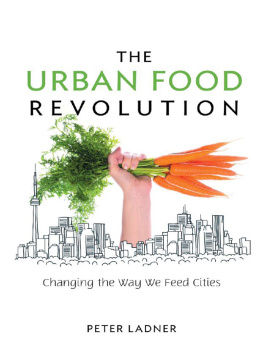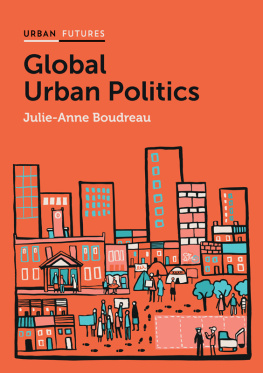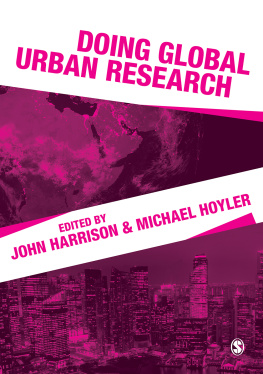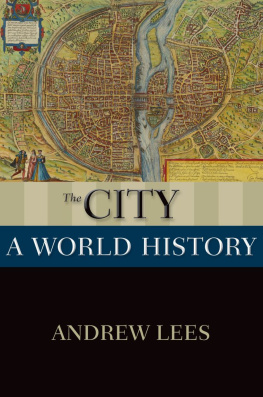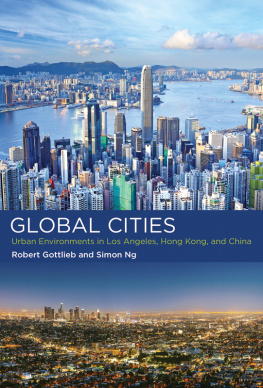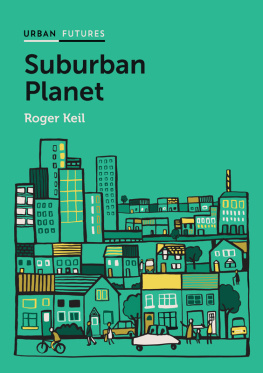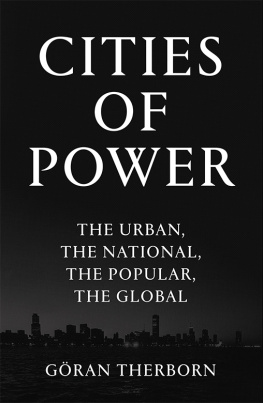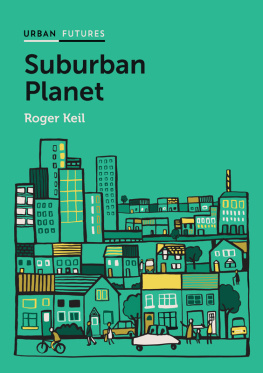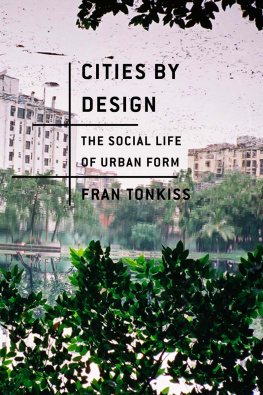Welcome to the Urban Revolution
Welcome to the
Urban Revolution
How Cities Are Changing the World
JEB BRUGMANN

VIKING CANADA
Published by the Penguin Group
Penguin Group (Canada), 90 Eglinton Avenue East, Suite 700, Toronto, Ontario, Canada
M4P 2Y3 (a division of Pearson Canada Inc.)
Penguin Group (USA) Inc., 375 Hudson Street, New York, New York 10014, U.S.A.
Penguin Books Ltd, 80 Strand, London WC2R 0RL, England
Penguin Ireland, 25 St Stephens Green, Dublin 2, Ireland (a division of Penguin Books Ltd)
Penguin Group (Australia), 250 Camberwell Road, Camberwell, Victoria 3124, Australia (a division of Pearson Australia Group Pty Ltd)
Penguin Books India Pvt Ltd, 11 Community Centre, Panchsheel Park, New Delhi 110 017, India
Penguin Group (NZ), 67 Apollo Drive, Rosedale, North Shore 0745, Auckland, New Zealand (a division of Pearson New Zealand Ltd)
Penguin Books (South Africa) (Pty) Ltd, 24 Sturdee Avenue, Rosebank, Johannesburg 2196, South Africa
Penguin Books Ltd, Registered Offices: 80 Strand, London WC2R 0RL, England
Published in Viking Canada hardcover by Penguin Group (Canada), a division of Pearson Canada Inc., 2009. Simultaneously published in the United States by Bloomsbury Press, New York.
1 2 3 4 5 6 7 8 9 10 (RRD)
Copyright Jeb Brugmann, 2009
Author representation: Westwood Creative Artists
94 Harbord Street, Toronto, Ontario M5S 1G6
All rights reserved. Without limiting the rights under copyright reserved above, no part of this publication may be reproduced, stored in or introduced into a retrieval system, or transmitted in any form or by any means (electronic, mechanical, photocopying, recording or otherwise), without the prior written permission of both the copyright owner and the above publisher of this book.
Manufactured in the U.S.A.
ISBN: 978-0-670-06805-0
Library and Archives Canada Cataloguing in Publication data available upon request to the publisher.
American Library of Congress Cataloging in Publication data available.
Visit the Penguin Group (Canada) website at www.penguin.ca
Special and corporate bulk purchase rates available; please see www.penguin.ca/corporatesales or call 1-800-810-3104, ext. 477 or 474
In memory of my brother, Bob Brugmann, and colleague Judy Walker,
mentors in life and in the cause of sustainable development.
Contents
Preface
For the first time in history, more than half the worlds people are living in cities. If youve heard this fact once, youve heard it reported a dozen times. But reports on the explosive growth of cities generally elicit the question: So what? How does the increasing concentration of people and human endeavor in cities change our world? This book was written to provide an answer.
The simple answer: Cities are changing everything. They are transforming ecology, economics, politics, and social relations everywhere, for better or for worse, depending on different approaches to city building.
But cities dont transform the world alone, as islands of change. Now that 3.5 billion people have organized their lives in cities, and will be joined by another 2 billion over the next twenty-five years, the nature of what we call the city itself has changed. The result is something far bigger than the mega-cities weve also heard so much about. We are organizing the planet itself into a City: into a single, complex, connected, and still very unstable urban system.
This City has been birthing international political revolutions, new industries, financial crises, epidemics, and unprecedented environmental changes, the scale of which seem much larger than anything traceable to a city. Looking elsewhere for explanations, weve tried to understand the Citys new dynamics and unexpected events as globalization. But this abstract, hard-to-pin-down idea has offered little depth perception into the emerging ground reality. (It has even led some to proclaim that the world is flat!) This book argues that todays major global changes are rooted in a more local, material transformation: switching from building societies field by field and border by border, to building societiesand struggling to control themblock by block.
In the last centuries, city builders, leaders, and managers held a diminutive status in the worlds political order. Now, because of the Citys evolution, the local developments under their watch produce global impacts. This reality has shifted the rules of play in business, military, health, disaster prevention, and environmental strategy. Success in a world being organized into an urban system requires the ability to design, govern, and manage cities toward strategic ends. It requires a new practice: urban strategy.
Urban strategy, explored at length in the following pages, is the practice of shaping the growth of cities to address global problems and to achieve great ambitions. It starts at the level of individual cities and districts and extends to the development of networks of cities aligned in common purpose. Its disciplines have been developed by local government and business leaders, planners, architects, engineers, activists, and even communities of poor urban migrants who during the unmanageable last decades of rapid urban growth, insisted on building more productive, equitable, and sustainable cities. Their successes and failures, interpreted here, are offered as an instructive welcome to the Urban Revolution that we still little understand, and have too long ignored.
PART I
The Urban Revolution
CHAPTER 1
Look Again
A View from the Expanding Edge of the Global City
In 1994, during a visit to Machala, Ecuador, I was taken to a scattered collection of shacks, suspended on stilts eight feet above an open marshy field at the southern edge of the coastal city. There were no paved roads to the place, none of the elements that we associate with our idea of a cityno permanent buildings, walkways, drains, water pipes, or lights. The dozen or so shacks were made of scrap boards, sticks, and thatched grasses. They had appeared over the course of a single night a few months before.
The only adults around were women. My host, the citys vice mayor, explained that the men had left in customary fashion to take up work on banana plantations, on construction jobs, or in the new shrimp farms. The women had organized their new community into a barrio association to fight for their claim to the land. As we entered the settlement, the women watched but avoided us, remaining focused on their chores. In contrast to the crowded sidewalks, blaring music, and broadcast political appeals in Machalas busy little commercial center a mile or so away, this place seemed deadly quiet. But it was a deceptive stillness.
When I think of this place today, after looking at recent satellite photos of the region, I feel like an astronomer might, peering through a high-powered telescope, watching and measuring the clustering gases of a birthing star. For this new settlement in Machalawhich itself was a town of only seven thousand in 1950has proven to be far more than the isolated encampment it appeared to be in 1994. It was the expanding edge of a sort of organism, remaking that remote part of the world and connecting its people, commerce, and politics with cities everywhere.
Today, Machala is still a small city with its population of two hundred thousand. That makes it a tiny place on a planet with a population approaching seven billion. Even on the urbanized part of the planet, which counts 3.5 billion residents and nearly two hundred metropolitan areas with more than two million people, Machala is but a half-made town. Its the kind of place you might pass through without even noting its name. But look again. Something truly revolutionary is happening in these small and isolated places.
Next page

